-
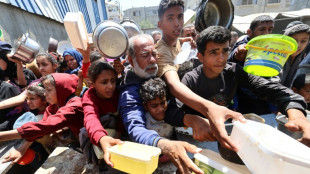 Israel cabinet approves plan for Gaza 'conquest'
Israel cabinet approves plan for Gaza 'conquest'
-
Alexander-Arnold confirms Liverpool exit after 'hardest decision'

-
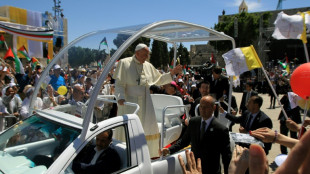 Francis's popemobile converted into clinic for Gazan children
Francis's popemobile converted into clinic for Gazan children
-
Spain's blackout highlights renewables' grid challenge
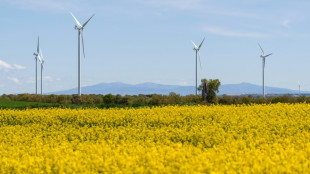
-
 Trent Alexander-Arnold announces Liverpool departure
Trent Alexander-Arnold announces Liverpool departure
-
Top French chefs warm to AI in the kitchen
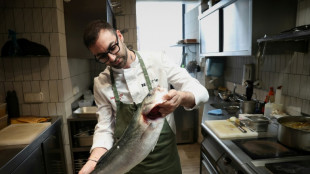
-
 France, EU leaders spearhead effort to lure US scientists
France, EU leaders spearhead effort to lure US scientists
-
Huthis say US bombed Yemen after strike on Israel's main airport
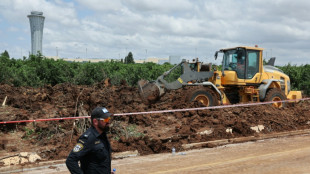
-
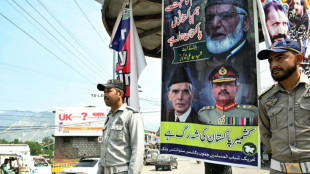 Pakistan conducts second missile test since renewed India standoff
Pakistan conducts second missile test since renewed India standoff
-
Israel cabinet approves plan including Gaza 'conquest'
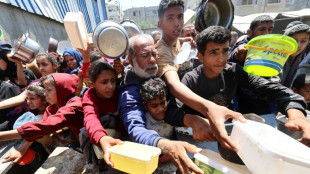
-
 Oil prices slide after OPEC+ output hike
Oil prices slide after OPEC+ output hike
-
Kardashian ready to 'confront' her Paris attackers in court: lawyers

-
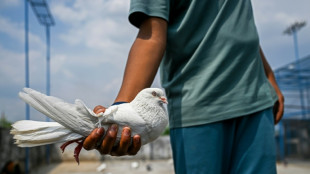 Flight club: Pinching pigeons on the India-Pakistan border
Flight club: Pinching pigeons on the India-Pakistan border
-
Trump orders rebuilding and reopening of defunct US prison Alcatraz
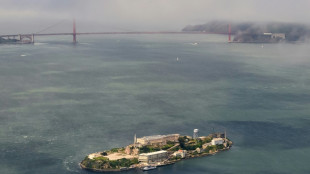
-
 Jury selection to begin in Sean 'Diddy' Combs sex crimes trial
Jury selection to begin in Sean 'Diddy' Combs sex crimes trial
-
Facing a broken economy, Ghana's tech-savvy teens turn to fraud
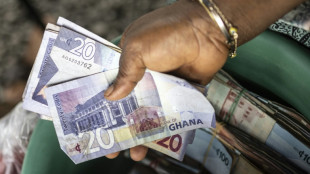
-
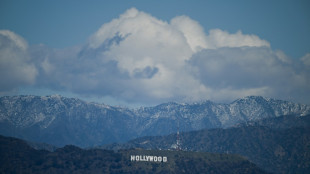 Trump says ordering '100% tariff' on all movies produced abroad
Trump says ordering '100% tariff' on all movies produced abroad
-
Victorious Australian PM holds 'warm' chat with Trump
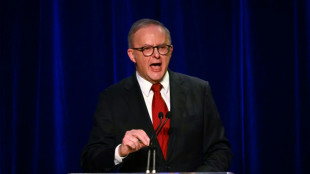
-
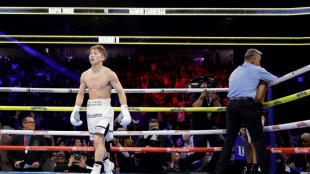 Inoue knocked down but stops Cardenas in eighth to keep crown
Inoue knocked down but stops Cardenas in eighth to keep crown
-
Pacers shock Cavs, Warriors shoot down Rockets to advance in NBA playoffs

-
 'Bombshell' OPEC+ output hike hits oil price
'Bombshell' OPEC+ output hike hits oil price
-
Basketball bust-ups threaten ambitious Japan's hoop dreams

-
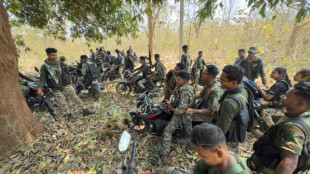 Red sunset: India's bloody push to crush Maoist revolt
Red sunset: India's bloody push to crush Maoist revolt
-
Huthis report US strikes after Israel vows revenge for airport attack
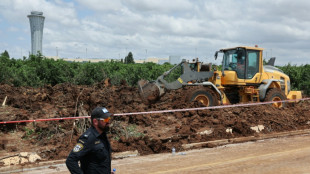
-
 South African men, New Zealand women win Rugby Sevens World Championships in LA
South African men, New Zealand women win Rugby Sevens World Championships in LA
-
Rufus Wainwright's 'Dream Requiem' explores catastrophe and redemption
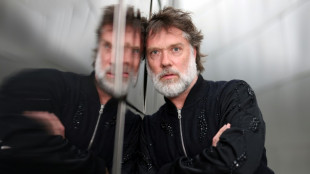
-
 Pacers shock Cavs in NBA playoff series opener
Pacers shock Cavs in NBA playoff series opener
-
Leading Proxy Advisory Firm Egan-Jones Recommends Stockholders Vote "FOR" All National Health Investors' Director Nominees
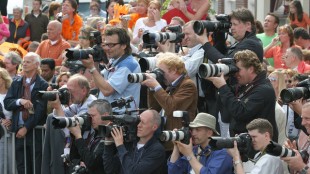
-
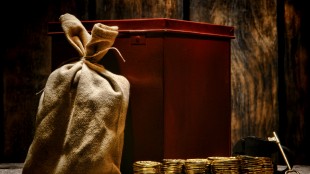 Primary Hydrogen Provides Update on Exploration Program Timing
Primary Hydrogen Provides Update on Exploration Program Timing
-
BioNxt Solutions Reports Expanded Patent Protection from the Eurasian Patent Organization

-
 Formation Metals Unlocks Copper-Zinc Potential at the N2 Gold Deposit with Insights from Revaluation of Historic Drill Core
Formation Metals Unlocks Copper-Zinc Potential at the N2 Gold Deposit with Insights from Revaluation of Historic Drill Core
-
'Sarcastic' Hamilton shows frustration as Ferrari struggle again

-
 Three in a row Piastri wins in Miami to lead McLaren one-two
Three in a row Piastri wins in Miami to lead McLaren one-two
-
Scheffler ties 72-hole PGA record in CJ Cup Byron Nelson romp
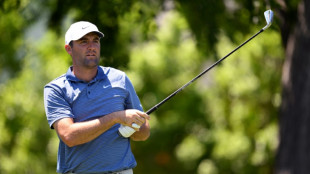
-
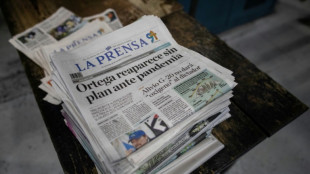 Nicaragua says quitting UNESCO over press prize award
Nicaragua says quitting UNESCO over press prize award
-
Oscar Piastri wins Miami Grand Prix to lead McLaren one-two

-
 Bednarek runs this year's world-best 200m to win at Miami Grand Slam
Bednarek runs this year's world-best 200m to win at Miami Grand Slam
-
'Lucky number seven' for Ruud after beating Draper to clinch Madrid Open

-
 China's Zhao leads Williams 11-6 in world snooker final
China's Zhao leads Williams 11-6 in world snooker final
-
Far-right candidate tops Romania's presidential rerun

-
 Ryu takes wire-to-wire win at LPGA Black Desert Championship
Ryu takes wire-to-wire win at LPGA Black Desert Championship
-
Marseille held by fellow Champions League hopefuls Lille

-
 'Lonely' Palou cruises to win at IndyCar Alabama Grand Prix
'Lonely' Palou cruises to win at IndyCar Alabama Grand Prix
-
Zelensky says does 'not believe' Russian truce pledge
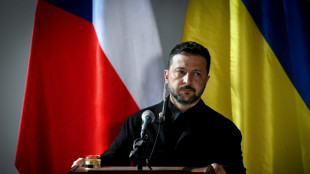
-
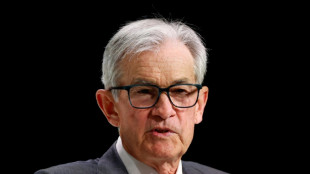 US Fed expected to pause rate cuts again, await clarity on tariffs
US Fed expected to pause rate cuts again, await clarity on tariffs
-
Ruud beats Draper to win Madrid Open and claim maiden Masters

-
 Far-right candidate leads Romania's presidential rerun
Far-right candidate leads Romania's presidential rerun
-
Parag's six sixes in a row, Pant flops in IPL

-
 Howe hails Newcastle's 'ruthless' Isak after VAR drama in Brighton draw
Howe hails Newcastle's 'ruthless' Isak after VAR drama in Brighton draw
-
Pant woes continue as Lucknow lose to Punjab in IPL

Buchenwald camp survivor recounts liberation, 80 years on
Jacques Moalic, a 102-year-old former Agence France-Presse journalist, remembers vividly the liberation of Buchenwald concentration camp by American troops 80 years ago.
In an interview with AFP, where he worked for 40 years after World War II, the Buchenwald survivor spoke of his last months in captivity and the arrival of American troops on April 11, 1945.
He recounted his ordeal once again, speaking ahead of the 80th anniversary of the camp's liberation. Around 56,000 Jews, Roma and Soviet prisoners died there between 1937 and 1945.
In 1943, Moalic, then a young Resistance fighter, was arrested and eventually forced to board a train.
He tried to flee, jumping from the train, but was caught.
In December 1943, he was brought to Buchenwald, which stood on a hill near the German town of Weimar.
He was placed in Block 34. In the hell that was Buchenwald, prisoners pinned their hopes on Allied forces, who landed on the beaches of Normandy on June 6, 1944.
- Transfer to Ohrdruf -
The liberation of Paris in August 1944 boosted their spirits.
"In the camps, people regained their courage," Moalic, former head of general news at AFP, said in his Paris apartment.
"They said to themselves, we will be free by Christmas. I didn't really believe it. I was right."
When the Allied troops had not arrived by the end of the year, many began to lose hope.
In January 1945, Moalic was moved to the Ohrdruf death camp.
"In January, on the 8th I believe, there was an unexpected gathering," he said. "The SS officer passed between the rows noting down the numbers. Eight hundred to 900 of us were to leave for a camp nobody knew about."
He was advised to try to get himself taken off the list if he wanted to live.
"But I was on it, and there was no escaping. We ended up in Ohrdruf."
The prisoners there were forced to dig underground tunnels.
"Guys worked day and night digging into the mountain," Moalic said.
He thought he would die.
"I said to myself: being woken up at four or five in the morning, going home at 10 at night, I'll last a fortnight. For the first time, I thought that maybe I wouldn't come back."
Instead, he was recruited as an electrician. The job saved his life.
"I slept in former Wehrmacht (German military) accommodations," he said. Other prisoners were exposed to temperatures of minus 15 degrees Celsius. Many died.
- Death march -
"Of course, we had known for some time that Russians and the Allies were advancing. But there's a big difference between 'they're advancing' and 'they're here'!" he said.
"One day at roll call, we heard a sound we had never heard before -- artillery, cannon," he said. They realised the Allies were within striking distance.
"We looked at each other and there was an extraordinary silence."
In 1945, Easter fell on April 1. They did not work that day. Then they were told they were being evacuated.
They were ordered to march, in columns of 1,000 people. They did not know their final destination.
They marched through mountainous countryside.
"It drizzled," he said. "We marched like that for three or four days."
Ohrdruf had been worse than Buchenwald, and the prisoners were exhausted.
Anyone who fell along the way was shot.
Many were killed during the death march, said Moalic.
"Some of the guys were already half dead when they started out," he said.
"We arrived at Weimar train station and then we started climbing towards Buchenwald."
It was a trek of around six or seven kilometres, he said.
"There were 72 corpses."
- Liberation -
When the prisoners arrived back at Buchenwald, it was dark.
"There were 3,000 to 4,000 of us on the roll call square," he said.
One man recognised him and took him back to Block 34. "I was covered in lice."
The Americans were getting closer.
"On April 11, there was a lot of excitement in the camp," Moalic said.
The prisoners did not know whether they would be liberated or massacred.
"The SS began to empty the camp, block by block, and each group was sent to Weimar station, where filthy wagons were awaiting."
The remaining prisoners were preparing for a possible fight.
"Then all of a sudden, an American unit arrived," he said.
"The SS did not engage in combat. They preferred to get the hell out of there," he said.
"A few minutes later, we were outside."
When Moalic finally returned to Paris, he was questioned by authorities at the iconic Lutetia hotel, which was turned into a welcome centre for concentration camp survivors.
He looked so haggard women gave up their seats for him in the metro.
"I still remember a pale spring sun," he wrote in an account published in 1985.
"Wednesday April 11, 1945 was a beautiful day for the inmates of Buchenwald concentration camp, the first beautiful day since July 1937, when Heinrich Himmler inaugurated and named it."
L.Harper--AMWN